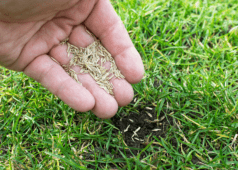How I Finally Became a Morning Person

Let it be stated, for the record, that I'm naturally a night owl. I hate waking up in the morning.
I'm not one of those people who are wired to pop out of bed, to the tune of that Rossini piece that plays at sunrise in cartoons, with a spring in my step and a grin on my face. (Being a morning person is so out of my orbit that I don't know if that's how early birds actually feel, or if it's just my pre-coffee-grump perception.)
You know what I do love? The feeling of accomplishing so many of the day's to-dos, especially the things that are both short-term urgent and long-term important, and looking up at the clock to realize it's barely lunchtime. I love reaching the end of a work day with the relief that comes with giving the whole day my full effort. I love the feeling of being proactive, which means that, though being an early bird isn't my natural inclination, I love its effects.
So, how did I ditch the hoot owls and start rising to catch the proverbial worm? Read on for some tips that helped me.

So, why the change?
Let me take a brief aside to talk about why I would even do this.
First, I'll admit that I've not actually become a true early bird. Literally this morning (yes, I woke up early to write this post—bonus points) in my research I took a chronotype test, designed to describe your body's sleep patterns within a 24-hour period. Unsurprisingly, I got results that pinpointed the early evening as my peak alertness window. So, in theory, I should probably do the day's most taxing tasks—writing and drawing—during an 8–11 PM window. My last 15 years of experience in college and career confirm that the evening hours are when I most often click into the flow state, that perfectly balanced zone between energy and control where I slip beneath the surface of self-consciousness and get totally immersed in what I'm doing.
So why in the world would I dam up that perfectly good river? In a word: flexibility.
If I were to list off this decade's buzzwords, “optimization” would be near the top of my list. Google's Ngram Viewer helps confirm that the word has had a near-exponential rise in printed material since the 50's:

I get it—we're all trying to do the best job possible, so why not try to make as many conditions under our control as favorable as possible? But sometimes I wonder if the quest for optimization can go a bit too far when what works for you isn't what's best for those around you. I'm in a season of my life where a more conventional schedule—the early rise, the 9–5 work day, relaxing in the early evening—works better for my family. So, though I'm work best in the evening, I've been training myself to work well during my off-peak hours.
Some Pointers for Night Owls
So, are you a night owl looking to pack in some early hours on your side hustle or even just to finally see that sunrise everyone's been talking about? Here are some ideas that worked for me, which will hopefully help you too. (I personally worked with The Morning Sidekick Journal for a couple of months as an early bird coach and recommend it!)
1. Commit to a window of time
Your brain takes a little while to build neural pathways, so as it is with any habit, you've got to stick with it before it can stick with you. It's a matter of debate as to how long it takes to cement habits, but you can't go wrong with a couple of months. The point is, commit to a specific period of time with a specific finish line to cross—try a whole calendar season, for example, or The Morning Sidekick Journal's very specific 66 days. (Full disclosure: I didn't make it to the end of their program, and it still worked for me.)
2. Have a reason to get up
I don't wake up if I know I don't have to. So if I'm going to drag myself out of bed at 6:30 (yes, early birds, that's the butt crack of dawn for night owls), I need to be convinced that I'm seriously going to miss something if I oversleep. So pick a specific project to work on or a new habit you want to make time for. It's a lot easier to tell that inner voice whispering “five more minutes” to shut it when you're truly sure you have something better to do.
3. Eliminate obstacles
Set up your morning stuff the night before as part of your evening routine. If you're going to finally write that novel, put the laptop at the table, with your chapter outline next to it; if you're training for that 5K, put your shoes and workout gear together neatly. And if you're a coffee drinker, for heaven's sake, don't wait until 6 AM to pull out your grinder, beans, kettle, and press.
4. Count off
When I've made a commitment to get up earlier than is comfortable for me, I often use this simple trick: alarm goes off, I count down from 5, then sit up quickly and shoot up out of bed. It almost sounds stupid, but it helps me keep from hitting the snooze because I literally don't give the excuse-giving side of my brain enough time to catch up. (I originally heard of this technique from Mel Robbin's 2011 TED Talk, and it's based on the neuroscience behind decision-making and procrastination. For a closer look, Inc.com has a good summary article.)
5. Adjust your bedtime (eventually)
I personally think it's OK to keep your same night-owl bedtime for a short time (within reason) while you're starting your early-bird routine, but it's a no-brainer that long-term sleep deprivation is just a bad idea. Even if you adjust to less sleep, it's not that your body has learned to require less, it's that your brain is getting accustomed to being sleep-deprived. So take naps if you can, and start adjusting your bedtime by 15-minute increments.
6. Stay consistent
Again, as it is with any habit: practice consistently. Do it every day at first. It'll take a while to get your brain used to this, and you're helping it out if you do it regularly. Even on weekends! But hopefully, if you've really done your homework on #2, motivation will be your friend, and you'll want to get up.
And finally, a caveat: I don't wake up early every single morning. For the last month, given my work and family commitments, I've opted for squeezing in a couple night owl-friendly hours of work after hours. But there have been several occasions when I've needed to squeeze in some working hours before the normal work day began, this morning included, and I found that—just like with anything else I've committed to muscle memory—I was able to get right back on the horse without a lot of effort.










